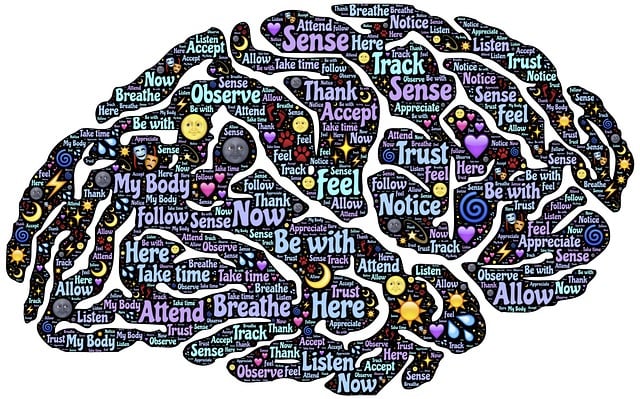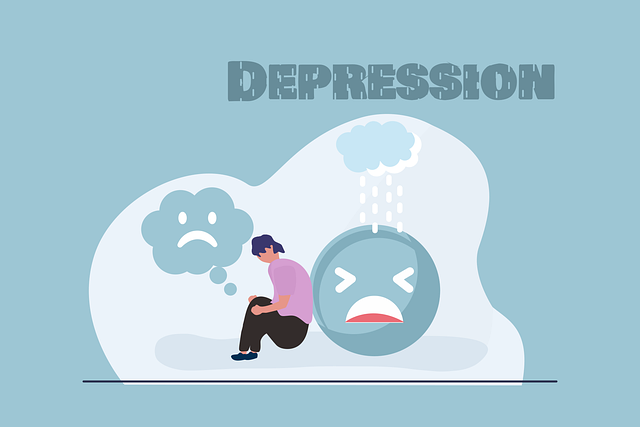Crisis Intervention Teams (CITs) require specialized training for effective mental health crisis management. Organizations like Littleton Biofeedback Therapy offer comprehensive CIT programs combining simulations, biofeedback technology, and Compassion Cultivation Practices. These training methods enhance de-escalation skills, stress regulation, and empathy, crucial for high-pressure situations. The program includes risk assessment, de-escalation tactics, and post-crisis support, focusing on practical scenarios and mental wellness strategies. Team-based training improves collaboration, resilience, and patient outcomes, despite challenges in implementation. Regular debriefings, self-care practices, and scenario drills further enhance CIT performance and well-being.
In today’s challenging social landscape, effective crisis intervention teams are essential for managing mental health crises. This article explores the critical role these teams play in communities, with a focus on innovative training methods like Littleton Biofeedback Therapy. We delve into key program components, benefits and challenges of team-based training, and best practices for continuous improvement. By understanding these aspects, including the unique contributions of Littleton Biofeedback Therapy, we can enhance crisis response effectiveness.
- Understanding Crisis Intervention Teams: Role and Importance
- Littleton Biofeedback Therapy: An Innovative Approach to Training
- Key Components of Effective Crisis Intervention Programs
- Benefits and Challenges in Implementing Team-Based Training
- Best Practices for Continuous Improvement and Support
Understanding Crisis Intervention Teams: Role and Importance

Crisis Intervention Teams (CITs) play a vital role in responding to individuals in mental health crises. These specialized teams, often composed of law enforcement officers, paramedics, and mental health professionals, are designed to provide immediate support and de-escalation techniques to those experiencing severe emotional distress or thoughts of self-harm. At Littleton Biofeedback Therapy, we recognize the importance of CIT training in equipping professionals with the skills to navigate these sensitive situations effectively.
The role of a CIT extends beyond mere intervention; it involves comprehensive risk management planning for mental health professionals. By enhancing their confidence and boosting mental wellness, these teams can minimize the potential risks associated with crisis scenarios. Through rigorous training programs that simulate real-life crises, mental health workers gain practical experience in de-escalation strategies, communication techniques, and trauma-informed care. This preparation enables them to respond calmly and efficiently, fostering a positive impact on both the individual in crisis and the broader community.
Littleton Biofeedback Therapy: An Innovative Approach to Training

Littleton Biofeedback Therapy offers an innovative approach to crisis intervention team training, combining traditional therapy techniques with cutting-edge biofeedback technology. This method facilitates a deeper understanding of emotional responses and promotes inner strength development through real-time feedback mechanisms. By integrating Compassion Cultivation Practices into the training curriculum, participants learn to regulate their stress levels and cultivate empathy, essential skills for navigating high-pressure situations effectively.
The program’s unique approach extends beyond the classroom, leveraging the Mental Wellness Podcast Series Production to reinforce learning outcomes. Engaging audio content allows trainees to immerse themselves in scenarios that mimic crisis intervention settings, enhancing their ability to apply learned techniques in practical contexts. This holistic training ensures that crisis intervention teams not only gain theoretical knowledge but also develop the emotional resilience and practical skills needed to make a tangible difference in individuals’ lives.
Key Components of Effective Crisis Intervention Programs

Effective crisis intervention team training programs are multifaceted, aiming to equip professionals with essential skills to navigate and de-escalate critical situations. Key components include comprehensive risk assessment strategies, where teams learn to identify warning signs of potential crises, from subtle behavioral changes to explicit threats. Littleton Biofeedback Therapy, for instance, has proven effective in teaching participants how their bodies respond during stress, enabling them to employ mindfulness techniques and biofeedback tools for better mood management.
Another crucial element is crisis de-escalation tactics, focusing on communication skills that foster a calming atmosphere. Training should emphasize active listening, empathy, and non-judgmental responses, as these are vital in diffusing volatile situations. Additionally, programs must delve into post-crisis support and recovery planning, ensuring individuals understand the importance of mental wellness and depression prevention strategies to help those affected by crises move towards resilience and healing.
Benefits and Challenges in Implementing Team-Based Training

Implementing team-based training programs for crisis intervention offers numerous benefits. Firstly, it fosters a collaborative environment where healthcare providers can share knowledge and skills, enhancing overall team performance. This collective approach not only improves individual resilience but also creates a supportive system that can better manage high-stress situations. By combining the expertise of various professionals, these teams can offer comprehensive care tailored to complex patient needs, ultimately leading to improved patient outcomes.
Despite these advantages, challenges exist in transitioning to team-based training models. Coordination and scheduling can be intricate, especially in large healthcare organizations. Ensuring all team members are on the same page regarding protocols and practices requires consistent effort. Additionally, individual therapists or providers might initially resist group training, valuing their autonomy or fearing group dynamics. However, effective communication and incorporating engaging activities like those offered by Littleton Biofeedback Therapy can help overcome these obstacles, ultimately strengthening crisis intervention teams and promoting Burnout Prevention Strategies for Healthcare Providers through enhanced Resilience Building and Self-Awareness Exercises.
Best Practices for Continuous Improvement and Support

Effective crisis intervention team (CIT) training programs emphasize continuous improvement and ongoing support to ensure the well-being and effectiveness of team members, especially in stressful situations. One proven best practice is regular debriefings where teams can reflect on their experiences, discuss challenges, and share strategies for handling critical incidents. These sessions foster a culture of open communication and continuous learning, enabling CIT members to build resilience and adapt their approaches based on real-world scenarios.
Littleton Biofeedback Therapy, for instance, integrates self-care practices into CIT training by teaching participants techniques like mindfulness and relaxation responses. This not only enhances their emotional regulation but also improves decision-making under pressure. Additionally, risk assessment skills are honed through scenario-based drills and ongoing supervision, ensuring mental health professionals within the team can accurately identify warning signs and implement appropriate interventions. Such comprehensive approaches contribute to a more resilient and skilled CIT, better equipped to respond to future crises effectively.
Crisis intervention team training is a vital area of focus, especially with the growing demand for mental health support. Programs like Littleton Biofeedback Therapy offer innovative solutions, combining traditional crisis intervention skills with biofeedback techniques to enhance emotional regulation. By investing in comprehensive training that includes key components such as role-play scenarios and debriefings, organizations can improve team effectiveness and better manage crises. Despite challenges, the benefits of team-based training are significant, fostering better collaboration, communication, and overall resilience. Implementing best practices for continuous improvement ensures these programs remain dynamic and relevant, ultimately leading to enhanced support for individuals in crisis.














